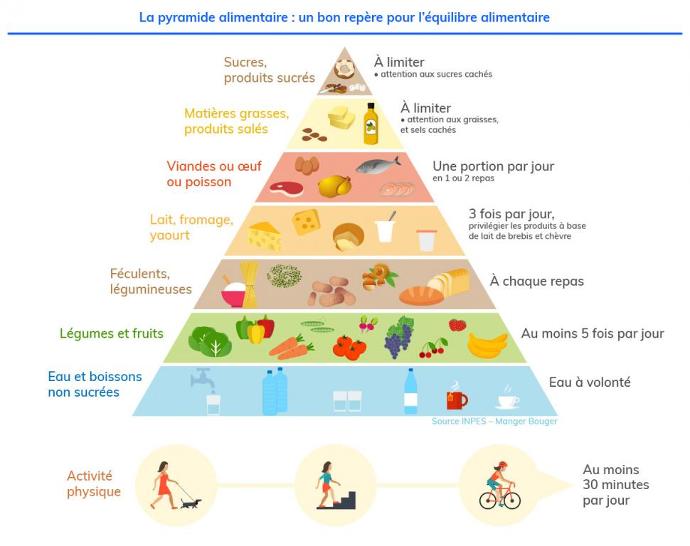The Mediterranean diet is a set of healthy eating habits from around the Mediterranean - from Spain to Morocco, Italy, Greece and many other countries - with a host of recipes that are as colorful as they are healthy.
Indeed, the Mediterranean diet (MedDiet) is considered one of the healthiest diets in the world, as it is the most widely described and evaluated in scientific literature.
Scientific evidence suggests that people who follow the Mediterranean Diet have a lower risk of developing cardiovascular disease, metabolic disease or cancer, than those who don't.
What makes the Mediterranean diet so beneficial to health?
This summer, we invite you to explore the extraordinary extraordinary benefits of the Mediterranean diet, a lifestyle a lifestyle that combines health and pleasure.
This traditional diet, rich in fresh colorful, tasty foods, is associated with numerous health benefits. health benefits.
It contains antioxidants (including polyphenols), vitamins, fiber and carbohydrates(fruit and vegetables, pomegranate juice...).
Low in saturated fatty acids (butter, red meat...)
Contains monounsaturated fatty acids (extra-virgin olive oil) and omega-3 (fatty fish)
This has many beneficial effects, mainly in terms of cardiovascular and metabolic health and mental well-being.
What's more, the Mediterranean diet :
- Is satiating
The Mediterranean diet offers a good variety of nutritious, unprocessed foods with which toachieve satiety fairly easily, thus preventing snacking between meals. What's more, the pure pomegranate juice is a good alternative to red wine in this type of diet for its antioxidant and polyphenol content.
Prevents cardiovascular disease
Numerous studies show that the Mediterranean diet is genuinely effective in preventing cardiovascular disease. (1)
Reduces the risk of cancer
The Mediterranean diet reduces the risk of both cardiovascular disease and cancer. (1) In fact, studies have shown that populations adopting the Mediterranean diet are much less exposed to certain types of cancer, such as breast, prostate and colon cancer (3).
- Extends life expectancy
The Mediterranean diet is also said toextend life expectancy and overall health. (5)
Reduces the risk of degenerative diseases
It also reduces the risk of developing degenerative diseases (such as Parkinson's orAlzheimer's) and their progression. (6)
It is not non-binding
The Mediterranean diet has the advantage of not banning any foods.
It is inexpensive
Last but not least, the foods eaten in large quantities on the Mediterranean diet are mainly inexpensive and readily available. This makes the diet attractive to the wallet.
What is the Mediterranean diet?
The Mediterranean diet is characterized by a high consumption of plant-based foods, whenever possible seasonal, local and minimally processed.Olive oil plays a key role, as it is the main source of fats.
This diet is characterized by an almost exclusive preference for plant-based products, accompanied by olive oil, cereals and nuts, as well as moderate consumption of red wine with meals. This unique combination sets it apart from other healthy eating models [7].

The benefits of polyphenols in the Mediterranean diet
Polyphenols, naturally present in many plant-based foods, play an essential role in this type of diet. These powerful antioxidants help protect cells from oxidative damage, reducing inflammation and the risk of chronic disease [8].
Dark-coloured fruits, such as the grenadePomegranates are an exceptional source of polyphenols. A daily glass of pure ORGANIC pomegranate juice is an ideal alternative to the daily glass of wine recommended in the Mediterranean diet. It brings not only a touch of exotic flavor, but also all the benefits of polyphenols, contributing to your overall well-being.
And in practice? A few simple tips for adopting the Mediterranean diet

1. Focus on fruits and vegetables: add a variety of colors to your plates by choosing fresh, seasonal fruits and vegetables.
2. Opt for wholegrain cereals: choose wholegrain pastas, cereals and breads to increase your fibre intake.
3. Include extra-virgin olive oil in your diet: replace saturated fats with this healthy oil for your culinary preparations.
4. Add legumes : chickpeas, lentils and beans are an excellent source of vegetable protein.
5. Incorporate polyphenols into your meals: try organic pomegranate vinegar concentrate to enhance your seasonings!
Sources :
(1) Keys, A. (1980). Seven countries: a multivariate analysis of death and coronary heart disease. Cambridge, MA: Harvard University Press.
(2) UNESCO. The Mediterranean Diet, Intangible Cultural Heritage of Humanity.
(3) Willett, WC., et al. (1995). Mediterranean diet pyramid: a cultural model for healthy eating. Am J Clin Nutr.
(4) Bach, A., et al. (2006). The use of indexes evaluating the adherence to the Mediterranean diet in epidemiological studies: a review. Public Health Nutr.
(5) Trichopoulou, A., Bamia, C. (2009). Anatomy of health effects of Mediterranean diet: Greek EPIC prospective cohort study. BMJ.
(6) Sofi, F., Cesari, F., Abbate, R., Gensini, G-F., Casini, A. (2008). Adherence to Mediterranean diet and health status: meta-analysis. BMJ.
[7] Akhondzadeh, S., Fallah-Pour, H., Afkham, K., Jamshidi, AH., Khalighi-Cigaroudi, F. (2004). Comparison of Crocus sativus L. and imipramine in the treatment of mild to moderate depression: a double-blind randomized pilot trial. randomized double-blind pilot trial. BMC Complement Altern Med.
[8] Hashemzaei M, Mamoulakis C, Tsarouhas K, Georgiadis G, Lazopoulos G, Tsatsakis A, Shojaei Asrami E, Rezaee R. Crocin: A fighter against against inflammation and pain. Food Chem Toxicol. 2020



